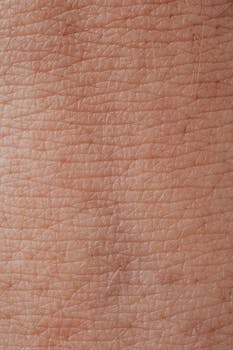
More Allergy, Asthma & Infectious Disease Articles
Uncovering Folliculitis Causes and My Journey to Cure This Skin Condition

Folliculitis causes frustration for many individuals dealing with this irritating skin condition. Understanding what leads to its onset is essential for effective management and prevention. In this article, we explore the causes of folliculitis and offer insights into its treatment and prevention. If you’ve ever asked “is folliculitis contagious,” you are not alone. Many are searching for answers to manage and possibly cure this common skin issue.
Understanding Folliculitis Causes
Folliculitis occurs when hair follicles become inflamed, often due to infection or physical irritation. The primary culprits are bacteria, particularly Staphylococcus aureus, fungi, viruses, and even physical irritation from shaving or friction from clothing. While typically harmless and self-limiting, folliculitis can be uncomfortable and unsightly.
Bacterial Infections
The most common cause of folliculitis is a bacterial infection by Staphylococcus aureus. This bacterium is frequently found on the skin surface and can enter hair follicles through cuts or abrasions, leading to irritation and infection.
Viral and Fungal Infections
In some cases, folliculitis can be caused by viral infections, such as herpes simplex, or fungal infections, particularly in warm, moist environments. These infections can disrupt the normal integrity of the hair follicle, leading to inflammation.
Physical Irritation
Physical irritation from shaving, tight clothing, or obstructive lotions can damage follicles, making them susceptible to infection. Techniques like waxing or using harsh skin products may also trigger folliculitis in sensitive individuals.
Is Folliculitis Contagious?
The question “is folliculitis contagious” often arises among those dealing with this condition. Generally, folliculitis caused by bacteria is not highly contagious, though direct skin contact with an infected person may lead to transmission. Practicing good hygiene and minimizing direct contact with infected areas can reduce the risk of spreading the condition.
Managing and Preventing Folliculitis
Prevention involves minimizing known triggers and maintaining a clean and dry skin environment. Using clean razors, wearing loose-fitting clothing, and avoiding harsh skin products can help. For bacterial folliculitis, topical or oral antibiotics may be necessary, whereas antifungal treatments are effective for fungal infections.
How I Cured My Folliculitis
While personal experiences vary, consistent hygiene practices and avoidance of irritation sources are key steps in managing folliculitis. Implementing a routine that includes gentle skin care and avoiding known irritants can significantly mitigate episodes. For persistent cases, consulting a healthcare professional is advised for tailored treatment strategies.
For a more comprehensive approach, a functional medicine perspective could be beneficial in identifying and addressing underlying issues. You can explore how addressing root causes and not just symptoms can aid in managing skin conditions through resources like complementary integrative healthcare.
Conclusion: What Causes Folliculitis?
Folliculitis is a skin condition with multiple causes, ranging from bacterial infections to physical irritation. Understanding these causes can help in managing symptoms and preventing future occurrences. By taking proactive measures, individuals can significantly reduce the incidence and impact of folliculitis.
- Folliculitis is often caused by bacterial infections.
- Maintaining hygiene can prevent the spread and occurrence of folliculitis.
- Treatment may involve topical or oral medications.
- Personal care and avoiding irritants play crucial roles in management.
- Consult healthcare professionals for persistent cases.
FAQs About Folliculitis
What is the main cause of folliculitis?
Bacterial infection, particularly by Staphylococcus aureus, is the primary cause of folliculitis.
Is folliculitis contagious?
Folliculitis is generally not highly contagious, especially when caused by bacteria. However, close skin contact can lead to transmission.
How can I treat folliculitis at home?
Home treatments include maintaining cleanliness, using antiseptic washes, and wearing loose-fitting clothes. For more severe cases, medical consultation is recommended.
Can stress cause folliculitis?
While stress itself does not directly cause folliculitis, it can weaken the immune system, making the skin more susceptible to infections.
Where can I find more information on managing skin conditions?
For more in-depth information on skin condition management, visit the detailed article on Wikipedia.
Other Articles You May Find of Interest...
- Can Amoxicillin Expire and Still Be Safe to Use?
- Pika Disease: What Are the Symptoms and How Can You Manage It?
- What Does Low Immunoglobulin M Mean for Your Health?
- The Benefits of Using Pink Himalayan Salt in Your Neti Pot
- Coping Strategies for Managing Asthma in Patients with Bronchitis
- How Interior Car Detailing Enhances Air Quality for Your RV
- Can a UTI Lead to Dizziness and Other Surprising Symptoms?














